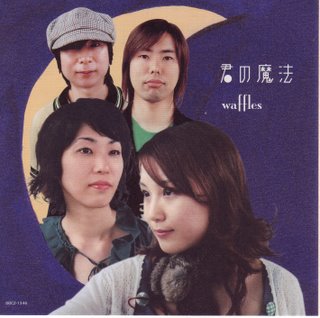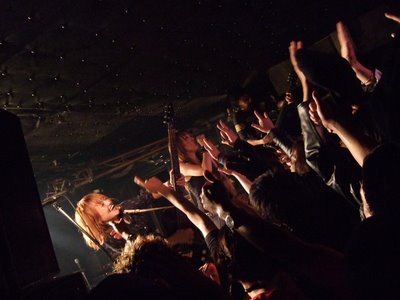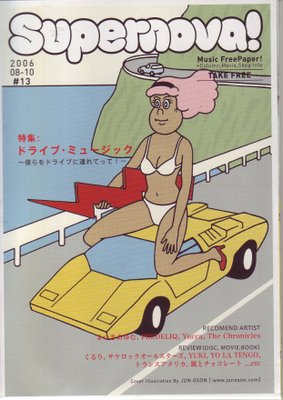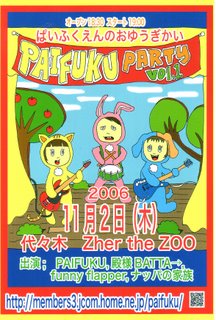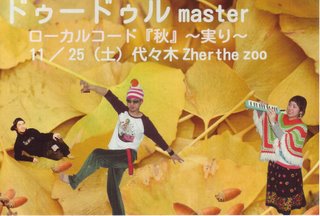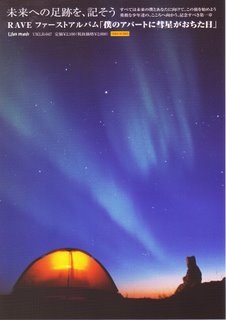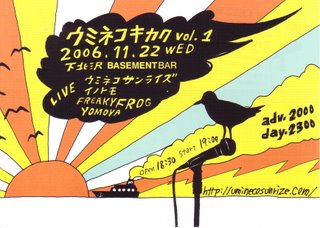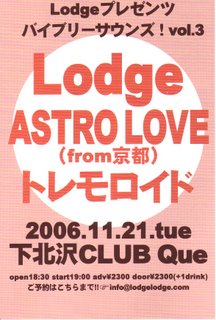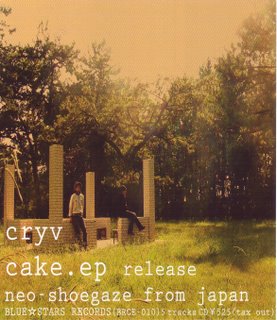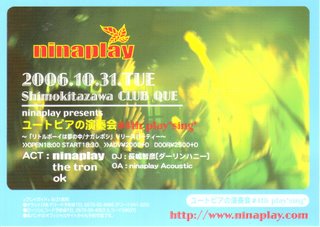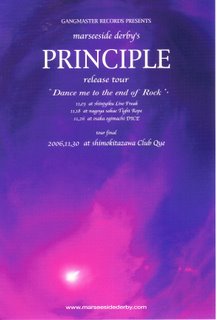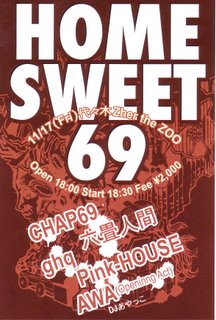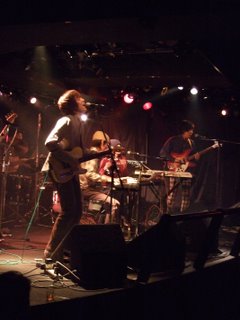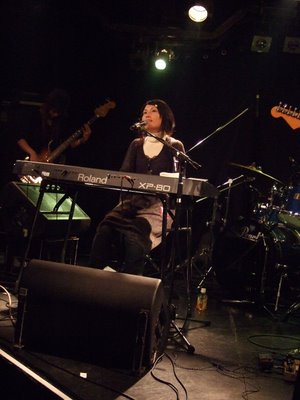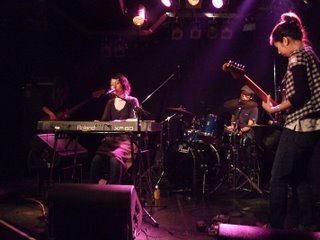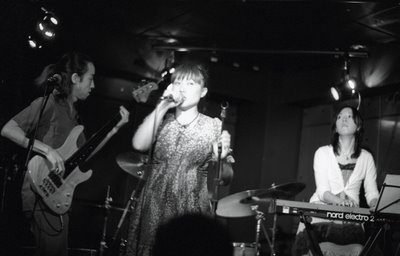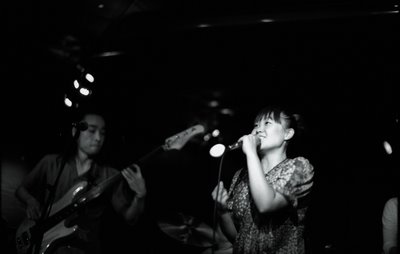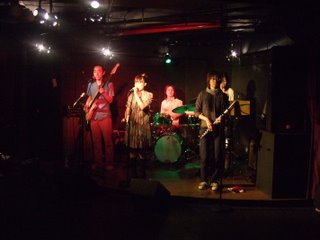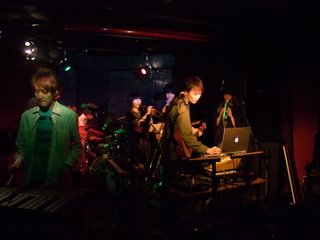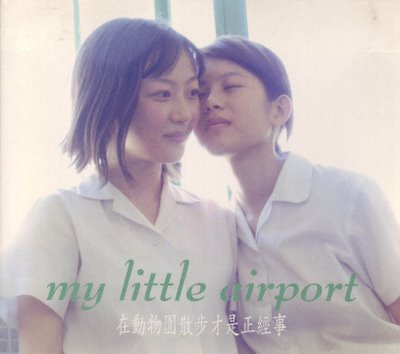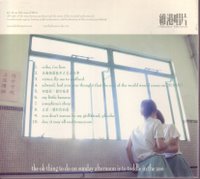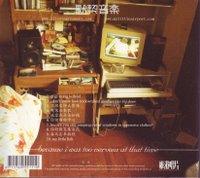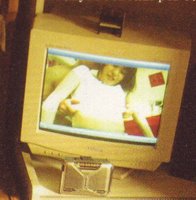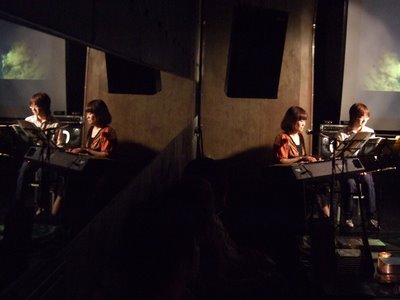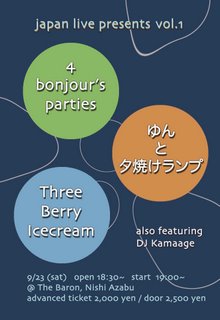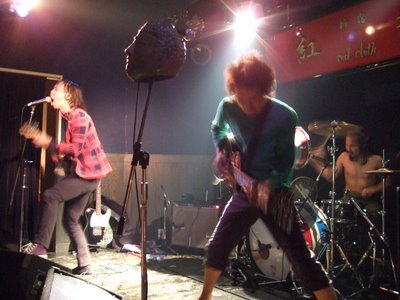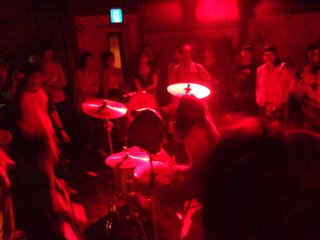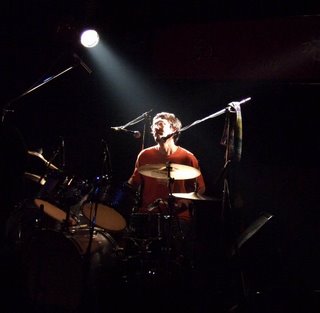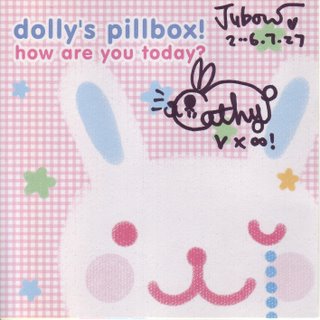 Is the ‘cover album’ a Japanese thing?
Is the ‘cover album’ a Japanese thing?That’s what I’ve been trying to figure out as I listen to Supersnazz’s Sweat Box, an album that consists entirely of Supersnazz playing other musicians’ songs. I’ve seen other Japanese bands do cover albums too—the Automatics’ Good Melodies is one—but I can’t think of an American or European act that tries it. Maybe there are copyright issues.
When Japanese musicians make cover albums, their aim is to celebrate and pay homage to their beloved and be-influenced music. But there are also two hidden agenda items: one is to show off their good, eclectic taste via their selection of tunes. The other is to display their musical creativity by arranging familiar songs in new and engaging ways.
On the first agenda, Sweat Box does the trick. Half of the songs the rock quartet plays are by what might be called the Punk Rock Canon of bands: Supersnazz covers X’s “Year 1”, the Replacements’ “Goddamn Job”, X-Ray Spex’s “I Live Off You” and the Dictators’ “Stay With Me” (and the Rolling Stones’ “Brown Sugar” and “Happy”, which were recorded before the punk era, but the Stones influenced a lot of punkers, so they count). The other half of the tunes, however, is a surprise: they cover very un-punk numbers like Captain & Tennille’s “Love Will Keep Us Together”, Mickey & Silvia’s “No Good Lover”, and even the Shirelles’ “Will You Love Me Tomorrow”! The selections are a fun glimpse into the unexpected favorite music of a band that writes almost exclusively hard rock of grunge-type tunes themselves.
As for arranging the songs in their own, unique way—yes, Supersnazz does that (they make “Love Will Keep Us Together” sound much more dark and heavy than the original, for example), but the really remarkable thing is, whether they are covering X or CCR or Captain & Tennille, they take it at a grab-you-by-the-collar intensity that old Supersnazz fans are familiar with from great albums like Diode City. (It cracked me up the first time I listened to the album that they even did a heavy rock treatment of the Shirelles.) Supersnazz doesn’t always get their tongue and teeth completely around the English lyrics of their cover tunes, but they more than make up for that with their consistent, energetic delivery. One of my favorite moments in Sweat Box is in “No Good Lover”, where guitarist Marky sings Mickey’s part and vocalist Spike takes Silvia. Marky starts the duet with a hyper and aggressive rendition of Mickey’s lines, in a tolerable cover, but then Spike comes on, and though also singing in a rocking way, she make it more playful, shooting up and down octaves, in a delightful performance that’s as if she’s saying, step aside, I’m Supersnazz’s singer.
Sweat Box is like Supersnazz inviting you into their house to take a peek at their record collection and pulling out a few favorite LPs, but rather than putting them on their stereo, they strum out their own versions. Nothing beats listening to a great, original song, but this isn’t bad at all either.







